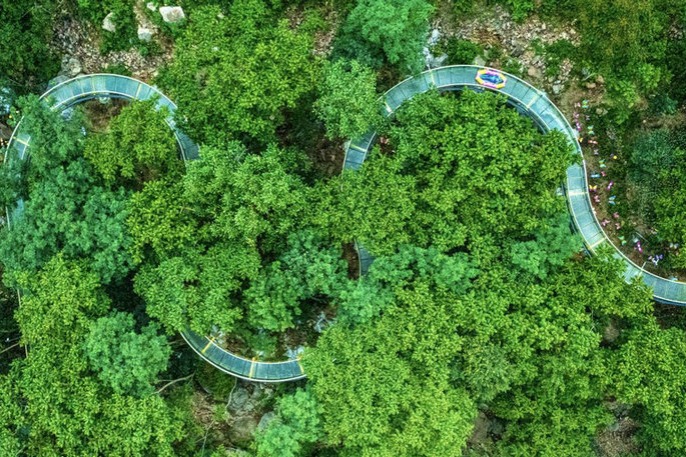Past resonates at ancient site on Silk Road






Its construction also laid the foundation for cultural exchanges.
"A foreign culture will not remain in a cultural desert. As with the human longing for an oasis, culture needs an oasis too," said Wang Xudong, director of Beijing's Palace Museum, in the book The Grottoes Corridor of China. "Dunhuang bridges ancient Chinese, Indian, Greek, Roman and Egyptian civilizations."
For thousands of years, traders speaking different languages came to Dunhuang to buy and sell Chinese silk, tea, porcelain, Western gemstones, spices, horses and fruit. The prosperous social and commercial activity has been depicted in paintings on walls of the ancient grottoes.
Ji Gang, a global partner at consultancy Roland Berger, said as a trade city with multiple languages and a blend of cultures and ethnic characteristics, Dunhuang shows the diversity and inclusiveness of the country. Its architecture, colored sculptures, wall paintings and other artworks were created by ancestors from different regions and eras, and are a priceless treasure for China and the world.
The Mogao Grottoes are a UNESCO World Heritage site with their numerous ancient murals and Buddhist statues in 735 caves. They are a rich resource for artistic and historical exploration.
Back in 366, a monk named Le Zun visited Dunhuang and witnessed a sunset on Sanwei Mountain. He believed the golden light was a sign of Buddha, and regarded it as sacred land. Then he raised money and hired workers to dig the first cave on the mountain so he could sit in meditation.
During the following 10 dynasties, more Buddhist believers, including monks, officials, merchants and members of royalty commissioned Buddhist statues and paintings, and the scale of the grottoes expanded.
However, as the Maritime Silk Road took over as the major channel for exchanges between China and the West, the role of land traffic to Dunhuang faded. After the Yuan Dynasty (1271-1368), construction of grottoes ceased. In 1528, residents moved inland, and Dunhuang became the home of nomads. The grottoes were forgotten for hundreds of years, and many parts were destroyed by wind, water and thieves.
"That's why the remaining caves are so valuable," said Li Ping, head of cultural promotion department at Dunhuang Academy.





























